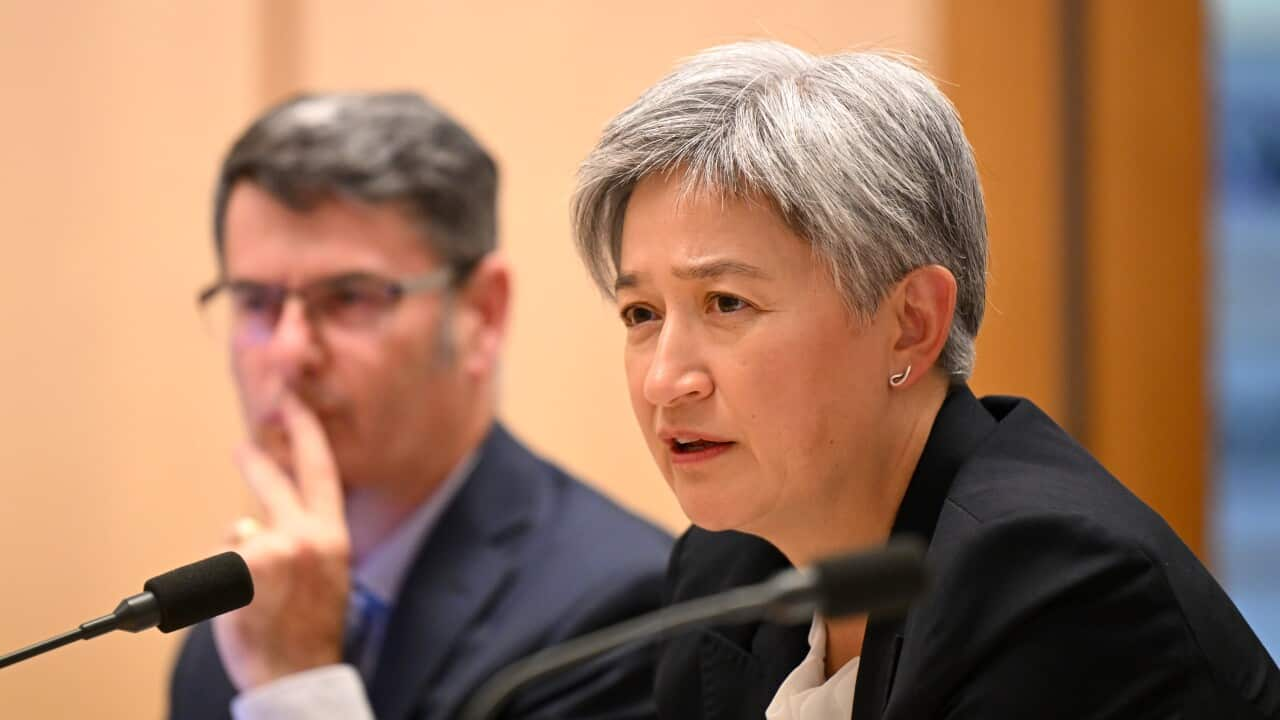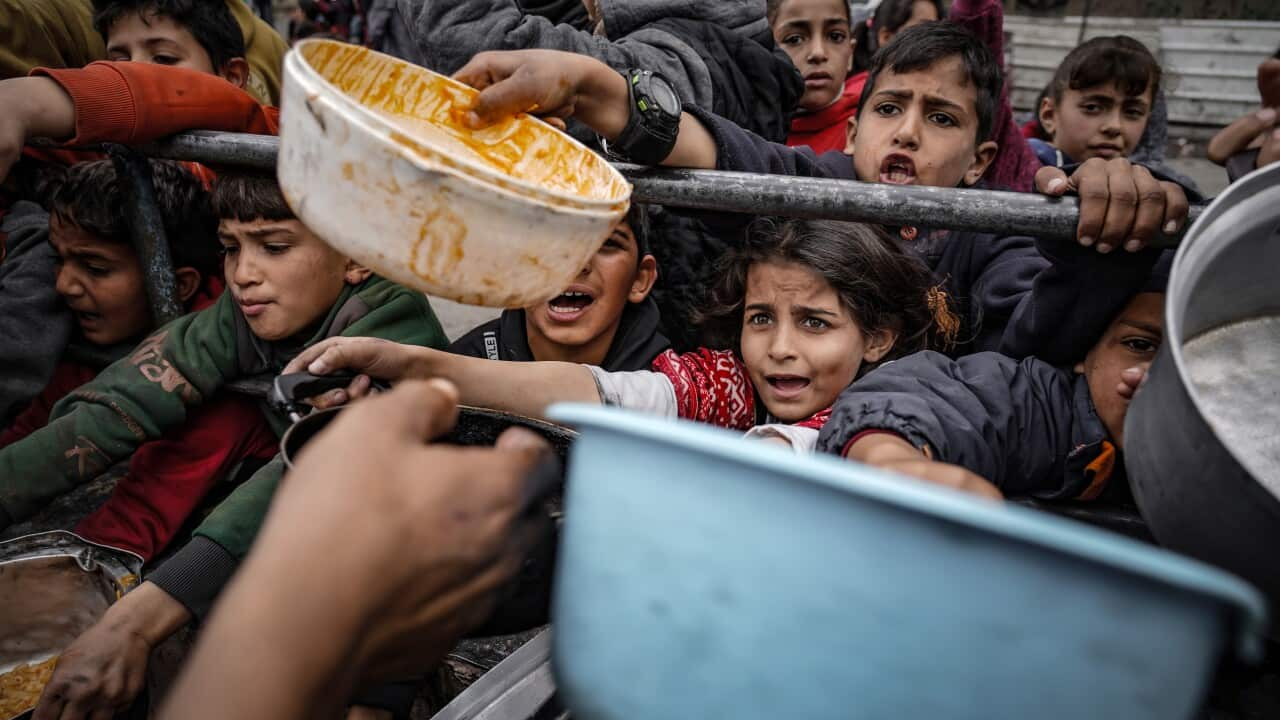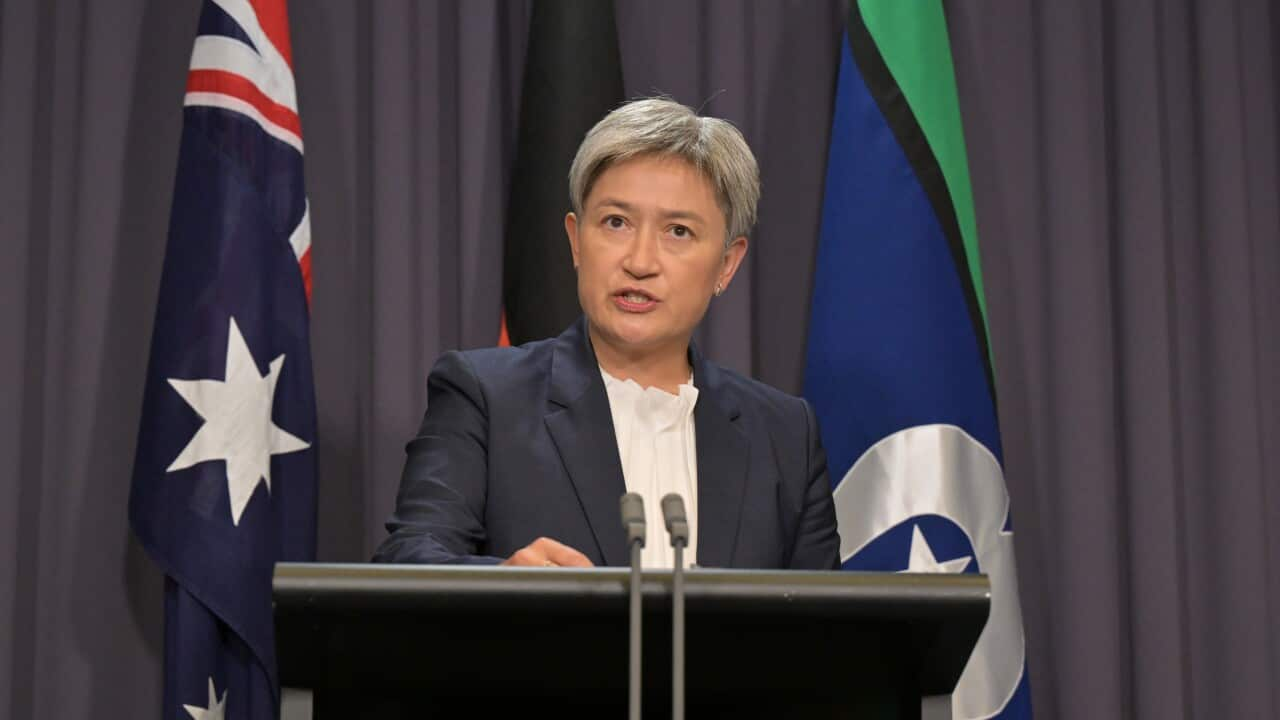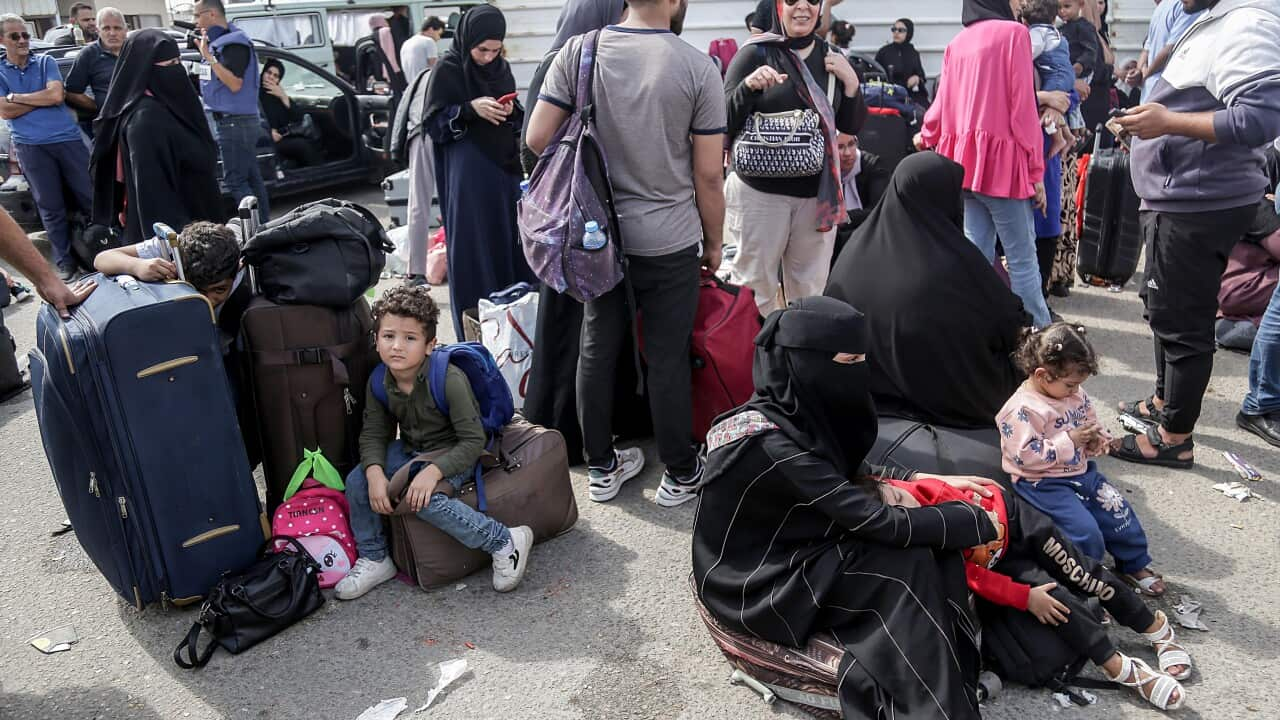Key Points
- Israel is reportedly preparing to launch a ground operation in the southern Gaza city of Rafah.
- Israeli airstrikes in Rafah killed at least 67 people on Monday, the Gaza Health Ministry said.
- More than one million people are sheltering in Rafah and aid agencies say an assault there would be catastrophic.
Australia has called on Israel to "listen to its friends" while expressing "deep concerns" about reports of an impending Israeli ground operation in the southern Gaza city of Rafah, where more than one million people are sheltering.
Israeli military strikes on Rafah on Monday killed at least 67 people, adding to the more than 28,000 Palestinians who have been killed since the Hamas-Israel war began, according to the Gaza Health Ministry.
Many people were asleep when the latest strikes started, according to residents contacted by Reuters. Israeli planes, tanks and ships took part in the strikes, with two mosques and several houses hit, according to residents.
Some sheltering there feared Israel had started its ground offensive into Rafah, according to Reuters.

Palestinians look at destruction from the Israeli bombardment of the Gaza Strip in Rafah, 12 February 2024. Source: AAP / Hatem Ali / AP
Under the cover of the airstrikes, Israel successfully carried out an operation to free two Israeli-Argentinian hostages in Rafah, the military said.
Israeli Prime Minister Benjamin Netanyahu's office has announced it ordered the military to develop a plan to evacuate Rafah and destroy four Hamas battalions it says are deployed there.
Why is there concern about Rafah?
Aid agencies say an assault would be catastrophic in Rafah, considered the last relatively safe place in an enclave hit by Israel's military offensive since Hamas militants killed 1,200 people, mostly civilians, and seized about 240 hostages from southern Israel on 7 October.
Over half of Gaza's population of 2.3 million have fled there to escape fighting in other areas, and they are packed into sprawling tent camps and UN-run shelters near the border.
One family, living in a tent on hard concrete against a metal fence separating Gaza from Egypt in Rafah, said they had nowhere left to flee.
"Every day, we’re on the run. Being displaced is tough because I have two daughters with disabilities. I can't carry them around. I don't have a car or a cart," Laila Abu Mustafa told Reuters.
Rafah had a pre-war population of 280,000, and is now housing the majority of Gaza's population, including most of the 1.7 million displaced Palestinians, according to Human Rights Watch.
"Forcing the over one million displaced Palestinians in Rafah to again evacuate without a safe place to go would be unlawful and would have catastrophic consequences. There is nowhere safe to go in Gaza. The international community should take action to prevent further atrocities," Human Rights Watch's Nadia Hardman said.
Médecins Sans Frontières said civilians were trapped in a tiny patch of land and had no options.
What has Australia said about operations in Rafah?
Prime Minister Anthony Albanese said on Monday that Rafah was "a place where people who have been displaced from their homes, often because their homes don't exist anymore, have been told to go to be safe".
"I unequivocally oppose the terrorist acts that occurred on October 7 but we cannot have disregard for innocent life and I'm very concerned at the consequences for those civilians," Albanese told Sydney radio 2GB on Monday.
Foreign Minister Penny Wong said Australia had already called for an immediate humanitarian ceasefire,
"Many of Israel’s friends, including Australia, have expressed deep concerns about reports of an Israeli military operation in Rafah," Wong told SBS News in a statement.
"There is growing international consensus: Israel must listen to its friends and it must listen to the international community."
Wong acknowledged the more than one million civilians sheltering in and around Rafah, saying many civilians who were displaced in Israeli operations in the north had moved south to this area, often under Israeli direction.
"Israel now must exercise special care in relation to these civilians," she said.
"Not doing so would have devastating consequences for those civilians and cause serious harm to Israel’s own interests."

A child plays in front of the tents of internally displaced Palestinians in Rafah refugee camp. Source: EPA / /
Two hostages freed as part of special Israeli operation
US President Joe Biden told Netanyahu on Sunday that Israel should not launch a military operation in Rafah without a credible plan to ensure the safety of the people sheltering there.
Netanyahu said in an interview aired on Sunday that "enough" of the 132 remaining Israeli hostages held in Gaza were alive to justify Israel's war in the region.
The Israeli military said two hostages were freed overnight in a joint operation involving the Israel Defence Forces (IDF), Israel's domestic Shin Bet security service and the Special Police Unit in Rafah.
Fernando Simon Marman, 60, and Louis Hare, 70, who were kidnapped by Hamas from Kibbutz Nir Yitzhak, were in good condition and taken to the Tel Hashomer Medical Complex, the military said.
"We've been working a long time on this operation," Israeli military spokesman Lieutenant Colonel Richard Hecht said.
"We were waiting for the right conditions."
The hostages were being held on the second floor of a building that was breached with explosives during the raid, which included heavy exchanges of gunfire with surrounding buildings, Hecht said.
Egypt warns Israel about an assault on Rafah
Egypt warned on Sunday of "dire consequences" of a potential Israeli military assault on Rafah.
Egypt, which already houses nine million refugees, according to the UN, has in the past said , citing the "economic burden" and not wanting to solely bear the "responsibility".
Jordan's King Abdullah said last year it was a "red line".
"That is a red line, because I think that is the plan by certain of the usual suspects to try and create de facto issues on the ground," he said.
Palestinians are concerned and .
Some have said they fear another Nakba, or 'catastrophe', when many Palestinians fled or were forced from their homes during the 1948 war that accompanied Israel's creation.
Israel has previously admitted that one of its ministries drafted a wartime proposal to transfer Gazans to Egypt's Sinai peninsula, but Netanyahu’s office played down the report as a "concept paper", according to the Times of Israel.
- with Reuters and AAP













